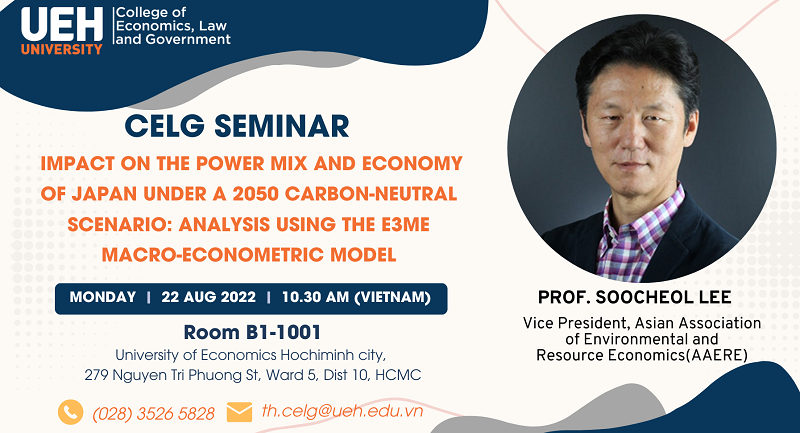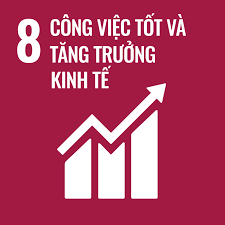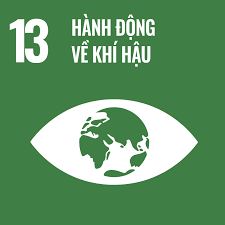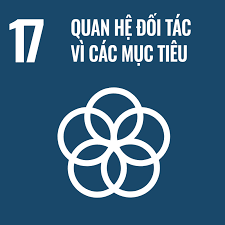CELG Seminar: Impact on the power mix and economy of Japan under a 2050 carbon-neutral scenario: Analysis using the E3ME macro-econometric model

Dear Lecturers, Researchers and Students,
The College of Economics, Law and Government would like to respectfully invite lecturers/ researchers to come and share your experiences at the CELG seminar:
Topic: Impact on the power mix and economy of Japan under a 2050 carbon-neutral scenario: Analysis using the E3ME macro-econometric model
Presenter: Prof Soocheol Lee, Vice President, Asian Association of Environmental and Resource Economics
Time: 10:30 AM (Vietnam), Monday 22nd Aug 2022
Location: Room B1-1001, 279 Nguyen Tri Phuong St, Ward 5, Dist. 10, HCMC
To present and submit a report, please fill out this form:
Abstract
This study uses the E3ME macro-econometric model to simulate what Japan’s macroeconomy would look like and how Japan's energy composition would change if the country were to achieve carbon neutrality by 2050. The results indicate that renewable energy will account for about 90% of the power supply configuration in 2050, assuming nuclear power plants are phased out by 2040. It is also predicted that GDP will increase by 4.0%–4.5% compared with the baseline scenario and that employment will improve by 1.5%–2.0%, resulting in simultaneous achievement of carbon neutrality and economic growth. The main reasons for these projected outcomes are that increased investment in renewable generation capacity in the power sector would be accompanied by increased investment in decarbonization technologies across individual economic sectors, increased private consumption resulting from increased employment and energy efficiency savings, and an improvement in the trade balance due to a substantial reduction in fossil fuel imports. In addition, the costs of energy due to policies to reduce or eliminate carbon would rise by 45%–55% point at most above the baseline scenario even in 2050; however, this would be of little burden on the economy, considering the substantial reduction in fossil fuel energy demand. Overall, it is estimated that energy bills would be 45% lower for consumers and 11% lower for industry in 2050 compared with the baseline.
Keywords: 2050 carbon neutral; E3ME; macro-econometric model; energy mix; decarbonization technology; Japanese economy
About presenter:
Soocheol Lee is a Professor of Faculty of Economics, Meijo University in Japan. He graduated from Seoul National University in Korea and received his PhD at the Graduate School of Kyoto University in Japan. He had worked for the Federation of Korean Industry as a team leader of Economic Research Department for about 10 years before he came to Japan. He has leaded Research Group of East Asia Environmental Policy Studies since 2002 and has written many books and papers on energy and environmental policy design and cooperation for sustainable low-carbon economy in East Asia. He is currently a Director of the Society for Environmental Economics and Policy Studies (SEEPS) and also a Vice president of the Asian Association of Environmental and Resource Economics (AAERE).


